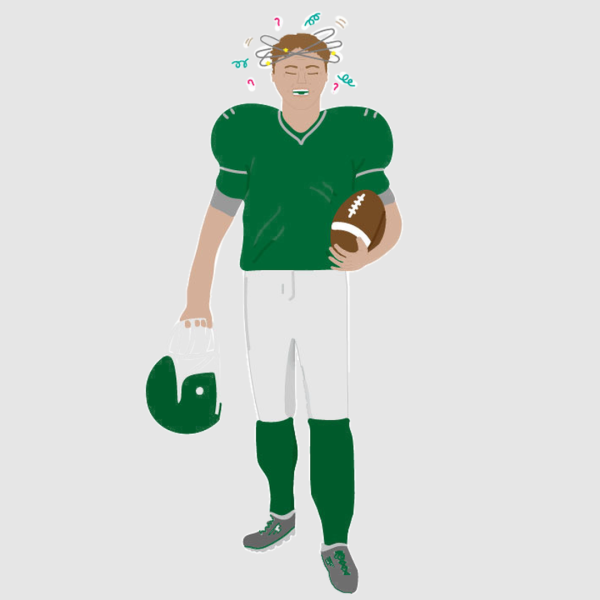Newsie goes gluten-free
Not everyone with a gluten allergy or celiac disease was born with their condition.
My aunt used to carb up on pasta before her college track meets, eat peanut butter and jelly sandwiches for lunch and enjoy an occasional slice of toast in the mornings. Then, something changed. Her hair fell out in clumps and her feet swelled to the point that she could no longer fit them in a pair of tennis shoes. After a doctor visit, she learned that her kidneys were completely shutting down. At only 25, my collegiate trackstar aunt was dying. It took the doctors several long months to pinpoint the reason for her sudden dramatic drop in wellbeing: Celiac disease. The grains of the food pyramid’s bottom most tier were the root of my aunt’s life-threatening condition. After she cut gluten, she miraculously returned to her healthy, athletic, mid-20-year-old self within weeks.
Before two months ago, I didn’t understand why someone without celiac disease would choose to forfeit fried chicken, doughnuts, cake and bread for no reason other than to say they joined the ever widening ranks of the trendy gluten-free hipster army. I felt that if bread didn’t make one’s internal organs stop working, he or she should eat as much gluten as possible.In fact, people who abstained from gluten when they weren’t diagnosed with celiac disease got on my nerves.
At a camp I worked at this summer, a fellow counselor gobbled up strange rice crackers and funky, “special” soups because she was “sensitive” to gluten. I asked her what happened when she ate it, expecting a dramatic reaction. She gave me the altogether irritating response that gluten made her stomach queasy, so she just quit eating it. In my mind, this chick just wanted an opportunity to explain why she couldn’t possibly eat chicken nuggets like everyone else. She wasn’t hungry for rice cakes–she was starved for attention.
My perspective completely changed in a matter of months. I began to feel awful. My kidneys weren’t shutting down, but I was more than a little queasy. I had stomach issues constantly. I was perpetually fatigued. I couldn’t focus on anything. All I wanted to do was sleep forever.
One day, when I was feeling particularly uncomfortable, I recalled my fellow camp counselor and her special food. I began to Google “why do I feel like crap?” and “gluten allergy.” My cursor stumbled upon a website that listed symptoms of gluten intolerance: digestive issues, chronic fatigue, brain fog, feeling tired after consuming gluten, mood swings, depression, pain in fingers, knees or hips, ADD symptoms and anxiety. Besides making me think of the side effect listing on an antidepressant commercial, the list reminded me of myself. I decided to cut gluten for two months to see if I felt any better.
Two months later, I still don’t eat gluten. Choosing to eliminate it from my life dissolved my prejudice against food sensitive people because I now directly relate to the breadless plight of the gluten intolerant. I’m no longer an absentminded zombie with a gut ache. If the health benefits end up being short term, I’ll regret forfeiting my cake, doughnut, sandwich and cookie opportunities when my metabolism was decent enough to process that refined sugary goodness, but right now, I feel better. The pros outweigh the cons, and I unenthusiastically remind myself of how “great” I feel every time I pass on someone’s homemade, chocolate-infused, buttercream-frosted, birthday cupcakes.






